The 20th century was a turbulent period. At the beginning of the century, cars were not yet in widespread use, women weren't able to vote, and there were only 45 American states. By the end, people were using computers and the Internet, and the most destructive conflict in human history seemed like it was in the distant past. It's a confounding century characterized by conflict and rapid change. If you’re looking for a thorough historical roundup of some of its greatest conflicts, look no further than the works of Sir Martin Gilbert.
Born in London in 1936 to Jewish parents whose own parents were refugees from Tsarist Russia, Gilbert was evacuated to Canada for his safety at the beginning of the Second World War, when he was a toddler. He retained vivid memories of this transatlantic crossing, which is said to have sparked his interest in war and history. He graduated from the University of Oxford in 1960 with a Bachelor of Arts in modern history, and was knighted in 1995 "for services to British history and international relations".
Gilbert was the official biographer of Winston Churchill, and with over 88 published books to his name, was considered a leading historian of the 20th century. If you’re unsure of where exactly to start with Gilbert's expansive bibliography, look no further than this handy roundup.
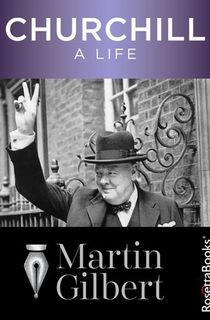
Churchill
Often considered one of the greatest politicians of the 20th century, Sir Winston Churchill is known as the cigar-chomping Prime Minister that saw Britain through the Second World War. Gilbert’s biography brings the man behind the cigar smoke into focus.
Using firsthand accounts, this work chronicles Churchill’s life, from his youth, to his journalistic work, and his military career during the Boer War and the First World War. Gilbert also examines the impact that Churchill had on the outcome of the Second World War, as well as the lasting influence he left on British politics.
Related: Inspiring Winston Churchill Quotes That Will Help You Maintain a Stiff Upper Lip
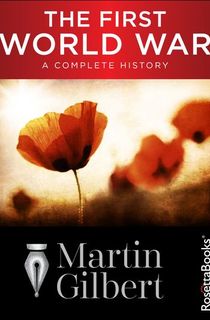
The First World War
Using firsthand accounts, Gilbert traces the origins, battles, and losses of "the war to end all wars". This conflict saw the rise of military technologies and advancements that would change the course of warfare forever. Gilbert ensures that the human elements of the war—the casualties, experiences, promotions and demotions that would go on to shape the world, including Adolf Hitler’s recommendation for an Iron Cross by his Jewish superior—do not go unmentioned.
Related: Take a Fresh Look at WWI with 8 Rarely Seen Photos of The Great War
In retracing the history of the First World War, Gilbert points to the roots of many of the conflicts that we currently find ourselves embroiled in, over a century later.
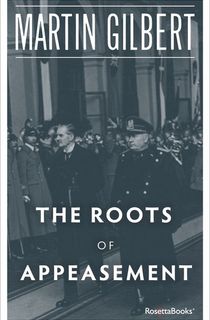
The Roots of Appeasement
Spanning over three decades of misguided diplomacy, Gilbert charts the ways in which the British policy of appeasement aided in the Nazis' rise to power. Beginning with the First World War and ending with the start of the Second, Gilbert considers the British position of relaxing the terms of the Treaty of Versailles, with the aim of bringing Germany more deeply into the fold of a progressing Europe. This was done with the intention of avoiding another war. However, Gilbert alleges that this policy led to fatal consequences for the Jewish people, and merely delayed the war, rather than put it off entirely.
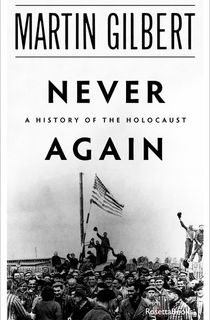
Never Again
In this work, Gilbert examines the lives of the Jewish people in Europe over the course of the Second World War. He begins with the conditions of the average Jewish citizen at the beginning of Hitler’s rise to power, and how his anti-Semitic policies changed their lives.
As Hitler’s power grew, so too did outward hatred toward the Jewish people. Many began to leave Germany, finding refuge in other parts of Europe, or fleeing the continent altogether. Gilbert compiles accounts from Holocaust survivors, using documents and photographs from the era to offer a complete picture of the atrocities faced by the Jewish people over the course of the 1930s and 40s.
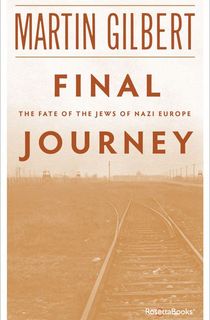
Final Journey
While an exact number is impossible to ascertain, it's commonly accepted that around six million Jewish people were murdered during the Second World War. This book revolves primarily around firsthand accounts of individuals who survived the Holocaust. Gilbert traces the experiences of those that were sent to concentration camps, where they were either killed outright or sentenced to hard labor. His work also looks at the motivation behind Hitler’s so-called “Final Solution”.
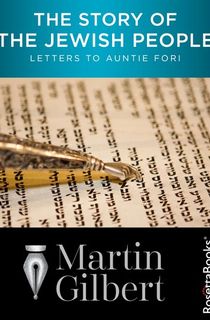
The Story of the Jewish People
Martin Gilbert learned that an acquaintance of his living in New Delhi, “Auntie Fori”, was not actually Indian by birth, but Hungarian and Jewish. She didn't know what to make of her heritage, and asked Gilbert about it. Structured through letters, Gilbert delves into an exploration of what it means to be Jewish—both in regards to faith and culture. He considers the Jewish global diaspora, and paints a picture for Auntie Fori as he explores Judaism in various contexts.
Related: These Fascinating Jewish History Books Illuminate the Path of the People
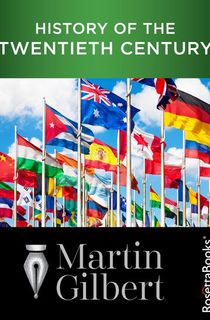
History of the Twentieth Century
Spanning a century’s major events in roughly 800 pages, Gilbert outlines the peaks and valleys of the 20th century. This work examines the humanitarian crises and wars that have left dark stains on our current history. It also considers the great works of art, music, and literature that shifted and lifted our spirits during a tempestuous century.
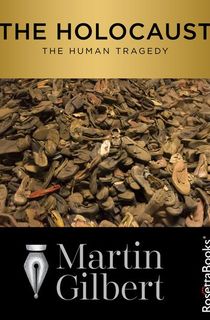
The Holocaust
Rather than exploring the politics behind Hitler’s “Final Solution”, Gilbert focuses primarily on the human tragedy, sharing stories of the average Jew's experiences in the inhumane conditions of ghettos and concentration camps. He uses both firsthand accounts and documentation of the various systems in place to track, sort, and exterminate the Jewish people over the course of the Second World War.
Related: Jewish Resistance Fighters Pulled Off the Largest Prison Escape of WWII
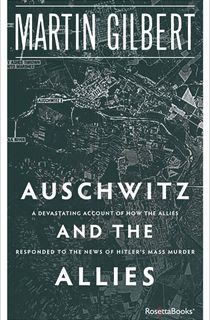
Auschwitz and the Allies
In this work, Gilbert explores the truth of the Allies’ knowledge of what was really happening at Auschwitz, the Nazis' largest death camp during the Holocaust. Gilbert poses several questions about why the Allies chose not to halt the horrors there sooner, explaining why their actions to liberate the concentration camps were so delayed. Gilbert uses firsthand accounts from Holocaust survivors as well as various government documentation to outline the avenues of knowledge that the Allies had access to.
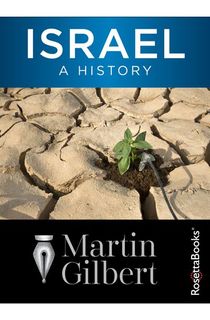
Israel
In this book, Gilbert examines the roots of the Zionist movement and the exodus of Jews from Europe to Palestine during and after the Second World War. He lays out the declaration of Israel's statehood in 1948 and the subsequent conflicts that have riddled its history, using eyewitness accounts and a wealth of personal knowledge of the country and its people. Gilbert draws on both an idealistic and realistic examination of Israel's creation, questioning what it takes to form a coherent state.
